NutraBio Plant Protein is here - and to put things quickly, if you like coconut bits, the German Chocolate Cake flavor is downright amazing and doesn't even taste like a plant protein!

NutraBio is the industry leader in quality and transparency, and has been for quite some time.
NutraBio has long been synonymous with extraordinary protein powders, anchored by their award-winning Classic Whey, Muscle Matrix, the industry-leading 100% Whey Protein Isolate, and the newly-released NutraBio Clear Whey Protein Isolate.
But what about the vegan and dairy-free folks out there?! The above proteins are all dairy-based, after all.
Introducing the new and improved NutraBio Plant Protein
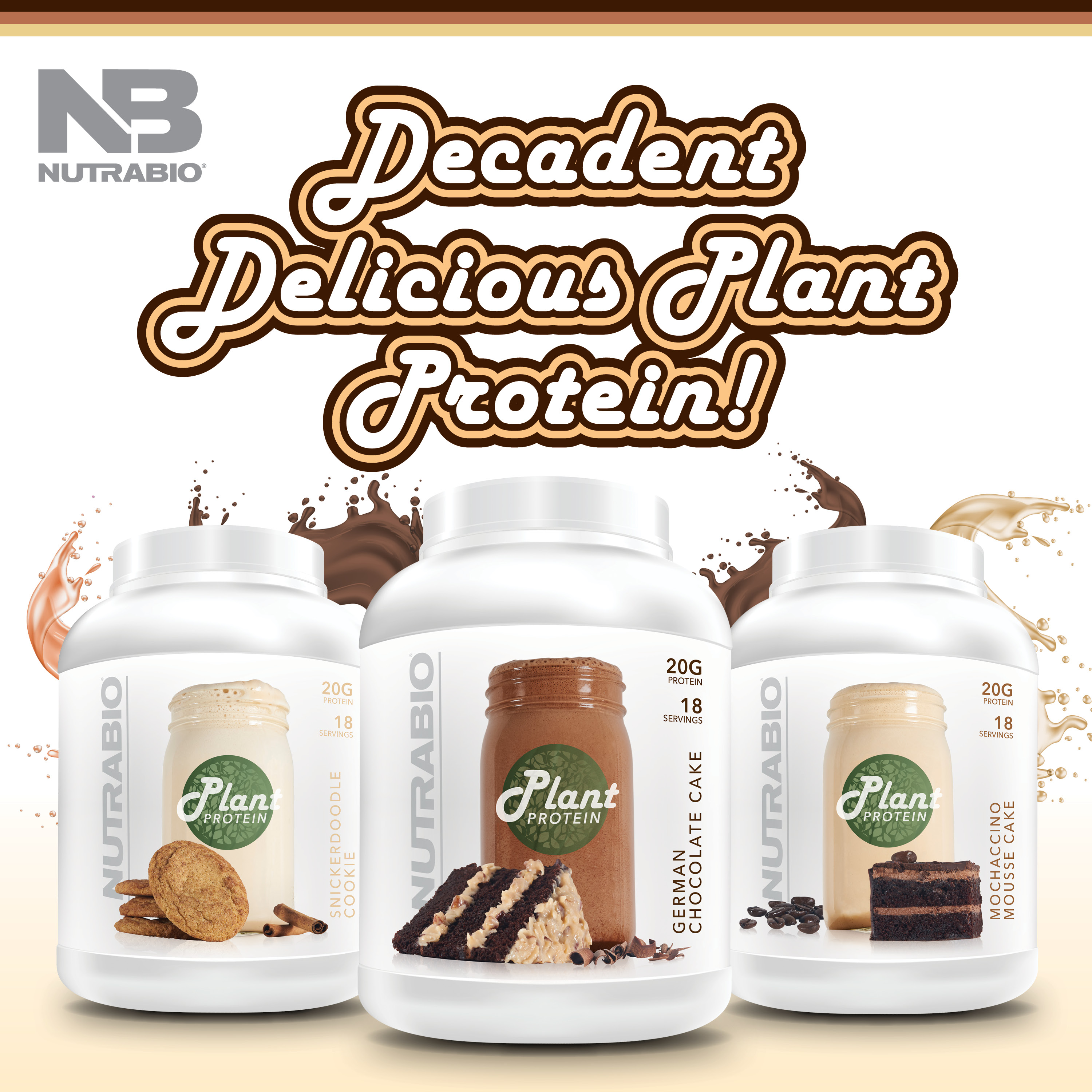
NutraBio Plant Protein launched in three decadent flavors: Mochaccino Mousse Cake, German Chocolate Cake, and Snickerdoodle Cookie. Our top is clear: German Chocolate Cake!
NutraBio did have a product named "Organic Plant Protein", but that launched in 2016, and as we all know, plant proteins have drastically improved the past couple of years. The days of chalky pea-tasting vegan protein powders are long over, and every year, plant proteins get closer to resembling the milkshake-like dairy drinks listed above.
It was time for NutraBio -- a brand with a ton of products and flavors (see our NutraBio News) -- to strike back. They announced the new NutraBio Plant Protein in January 2021 with three fantastic-sounding flavors, launching in February with three incredible flavors.
Ultra-High Digestibility
It's based upon whole yellow pea protein and whole brown rice protein, sweetened using monk fruit extract and stevia, with each scoop providing 20g protein. It's of course dairy free, but also gluten-free and non-GMO. On top of that, NutraBio is claiming a very high digestibility score with all nine essential amino acids and plenty of BCAAs inside.
We have the details below, with an initial tasting review as well - but the long and short is that the German Chocolate Cake flavor took the cake and is the "least planty" vegan protein powder we've ever had. Before digging in, check our PricePlow-powered deals and sign up for news alerts - we hope to notify you of more flavors for this one:
NutraBio Plant Protein – Deals and Price Drop Alerts
Get Price Alerts
No spam, no scams.
Disclosure: PricePlow relies on pricing from stores with which we have a business relationship. We work hard to keep pricing current, but you may find a better offer.
Posts are sponsored in part by the retailers and/or brands listed on this page.
This area is reserved for Team PricePlow's upcoming Product Introduction video.
Subscribe to our channel and sign up for notifications so you catch it when it goes live!
The NutraBio Plant Protein Nutrition Facts
The calories and nutrition are as follows, but note that it depends on the flavor:
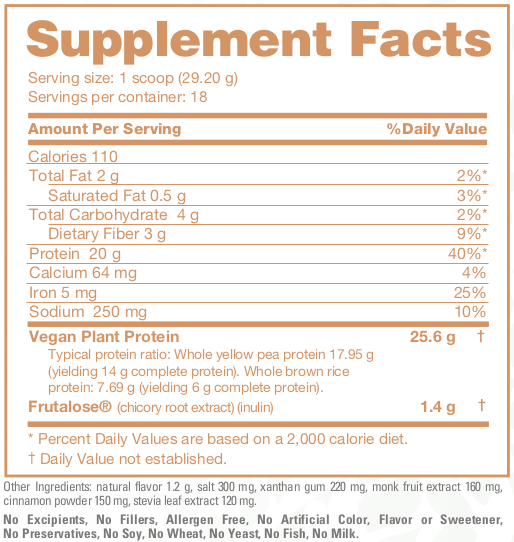
The NutraBio Plant Protein Ingredients - but the carbs, fats, and 'other ingredients' depend on the flavor!
- Calories: 110
- Protein: 20
- Fat: 2-3g
- Carbohydrates: 4-5g
- Fiber: 3-4g
If you track carbohydrates, don't fret too much - the majority of those carbs come from prebiotic fiber, which we'll detail below. This leaves us with just one active carb, and the taste/texture/flavor profile that comes along with it is downright superb.
The NutraBio Plant Protein Ingredients
In true NutraBio fashion, the label is fully disclosed, right down to exact protein components as well as the sweeteners and thickeners used. If this is your first time seeing a NutraBio supplement, then it's the norm (we get into their public 3rd-party lab tests below as well) and you should spend some time reading The NutraBio Story to understand what kind of brand you're supporting.
-
The Protein Blend
Thanks to the blend below, NutraBio claims a .95 PDCAAS, which stands for protein digestibility-corrected amino acid score. It has all nine essential amino acids and brings 3.7g of the three BCAAs (branched-chain amino acids - leucine, isoleucine, and valine).
-
Whole Yellow Pea Protein - 17.95g yielding 14g protein
Pea Protein and Whey Protein were both significantly better than placebo (not surprising), but not significantly different from each other.[1]
Pea protein has been the top plant protein ingredient thanks to its status as a complete protein due to the fact that it has a full amino acid profile.[2] With its high PDCAAS, it can be used to properly supplement our amino acid requirements.
Studies back it up too - one found that pea protein is an adequate alternative whey.[1,2] A 2015 study compared pea protein isolate against whey protein and placebo, putting subjects on a 12 week resistance training program. They took 25 grams of whey protein, pea protein, or placebo twice a day.[1]
In three months, the protein groups both saw significant increases in muscle thickness versus the placebo group![1] All participants increased strength, but the pea protein performed just as well as whey protein for assisting muscle mass gains. This made sense to the researchers, since whey and pea protein have similar amino acid profiles.[1,2]
Why yellow pea protein?
The above research is why pea protein is so frequently used in plant proteins, but why yellow pea protein? NutraBio touts that it contains an anti-catabolic ingredient known as legumin, which is a long-chain protein found in yellow peas. It is slow-digesting, and may help prolong the amino acid release into the bloodstream.
-
Whole Brown Rice Protein - 7.69g yielding 6g protein
While rice protein has a less complete amino acid profile,[3] it makes up for the low amounts of cysteine and methionine that are in pea protein.
Rice protein is a great additive, so long as it comes with a complete protein like pea protein. The reason its inclusion is beneficial is because around 37% of its protein content is made up of essential amino acids (EAAs), 18% are the three BCAAs, and 8% is leucine.[3,4] In addition, it has great amounts of cysteine and methionine, which are on the lower side in pea.
The downside is that it lacks a sufficient amount of lysine, so it cannot be considered a "complete protein,"[3,4] and this is why we like to see it paired with a heavy dose of pea. However, rice is allergen-free, so it's suitable for a wide range of individuals.[3]
A 2013 study found that there were no differences in recovery of lean body mass between subjects consuming equal amounts of rice protein isolate and whey protein.[3] This means that it too can be a suitable replacement for whey.
Ultimately, these are two complementary protein sources, so long as pea is the predominant one, which it is here.
-
-
Frutalose (chicory root extract) (inulin) - 1.4g
Frutalose is a trademarked brand of plant-based chicory root extract, which provides inulin. This is the ingredient that provides the fiber in the nutrition facts above, because it's a prebiotic fiber. But beyond that, it's also naturally sweet.
Due to its unique structure of fructose molecules, inulin is called a fructan. Because of this molecular arrangement, it is not digested by the body's small intestine.[5] Instead, it travels to the gut and works as a prebiotic, meaning the gut bacteria break it down, turning it into beneficial short-chain fatty acids (SFCAs). The SFCAs then act as a healthy food source the gut's beneficial bacteria and support colon cells.
So not only does inulin taste good, it thickens the protein powder in water, improves texture, helps keep you full, and supports a healthy gut microbiome![6]
-
The other ingredients
-
Flavoring: From cinnamon to coffee and cocoa to real coconut!
NutraBio always fully discloses the amount of flavoring and salt used (for instance, 1.2g natural flavor and 300mg salt in the Snickerdoodle Cookie flavor), as well as everything else. Snickerdoodle cookie comes with cinnamon, while the other flavors add cocoa, coffee, and real coconut!
-
Sweeteners: monk fruit and stevia
New to NutraBio? Read The NutraBio Story!
We're long past the time when stevia had a bitter "bite" to it. While stevia refinement has gotten so much better the past few years, the addition of monk fruit extract is what's really made plant-based sweeteners better. It adds cost, but it also adds a rich sweetness that stevia alone simply can't create.
Realize that this is a plant protein -- some brands may use synthetic sucralose in their "vegan" proteins, but that's not good enough for much of the community. While those may be "vegan", you're only truly plant-based with profiles like this one.
With sweetener combos this good, the only reason to use sucralose in a product like this anymore is because it's cheap, and that's not the NutraBio way.
-
Thickeners: xanthan gum (along with the Frutalose inulin)
NutraBio differentiates in a big way with the mouthfeel and texture of their Plant Protein. While you do get coconut chunks in the German Chocolate Cake flavor, the actual texture of the protein itself is incredible, and helps the product taste and feel different from other plant proteins.
German Chocolate Cake is the flavor to get, in our opinions - but realize there are coconut bits inside!
Their deviation is using a solid dose of xanthan gum on top of the inulin. Together, these really smooth things out in a great way. Xanthan gum is corn-based, and is frequently used in other proteins (including NutraBio's 100% Whey Protein Isolate), but we see it less frequently alongside the inulin - and the combination definitely works!
-
All flavors available
The product launched Feb 5, 2021 with three flavors, but over time, this area will remain up-to-date with all available flavors:
Making third-party lab tests matter
We constantly re-iterate that NutraBio is one of the very few brands to publish 3rd-party lab tests on all supplements. When you need to absolutely trust a supplement, third party testing on your lot is the de facto standard, and the brand has been publishing them all since early 2017.
Proper supplement testing becomes even more important with plant proteins, because they are at risk of having higher heavy metal content. A 2018 Consumer Reports article went viral, citing a study (which was not peer-reviewed) that plant proteins contained more arsenic and heavy metals than dairy-based proteins. On the surface, this makes sense - dairy proteins come from cows whose digestive systems "filter" and "diffuse" heavy metals from the environment, especially compared to other animals with less complex digestion processes.[7]
Plant proteins do not get the added "layer of filtration" from dairy cattle, making it incredibly important for brands to source the purest and highest-quality raw materials. Few, if any, are as exceptional at this as NutraBio, as you can read in our article titled The NutraBio Story: Supplements Without Compromise.
So on top of their incredible flavoring capabilities, it's the trusted procurement that picky consumers should excited about here. Even though procurement isn't an exciting topic, it's a critically important one.
Plant Protein Done Proper
NutraBio has done it again. While they're well-known for full disclosure, transparency, and ethics, the real story here is still the German Chocolate Cake flavor and the texture these proteins bring. This product was well worth the wait of the NutraBio faithful, who sadly had to go to the competition to get plant-based proteins. That's no longer the case, and when they come home to Team NutraBio, they will realize what Mark Glazier and his team have long known: perfection takes time.
Hopefully more flavors are to come -- to get ready, sign up for our NutraBio news alerts below, and see all NutraBio supplements and coupons on PricePlow.
NutraBio Plant Protein – Deals and Price Drop Alerts
Get Price Alerts
No spam, no scams.
Disclosure: PricePlow relies on pricing from stores with which we have a business relationship. We work hard to keep pricing current, but you may find a better offer.
Posts are sponsored in part by the retailers and/or brands listed on this page.
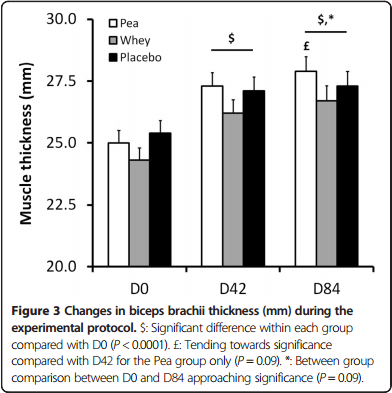
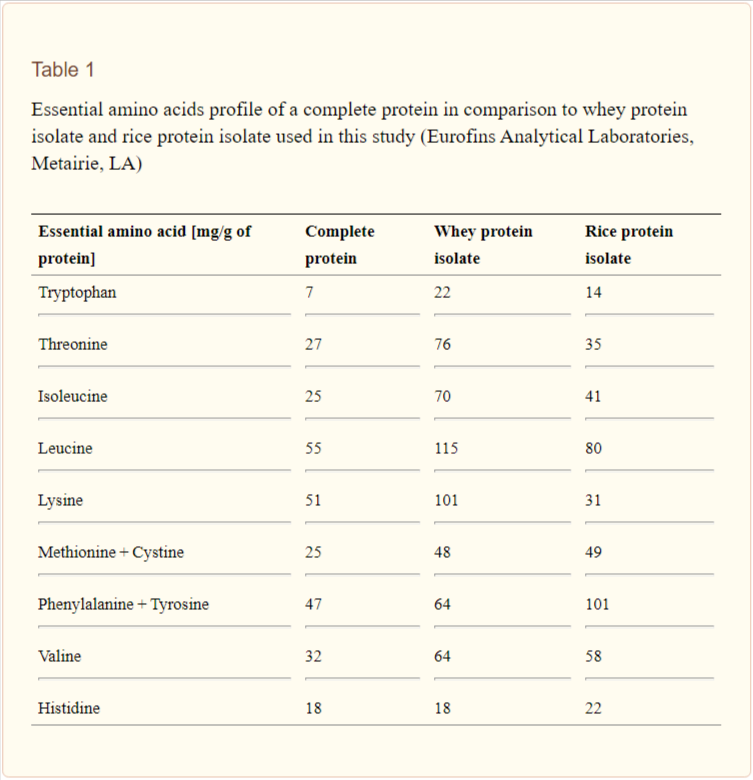
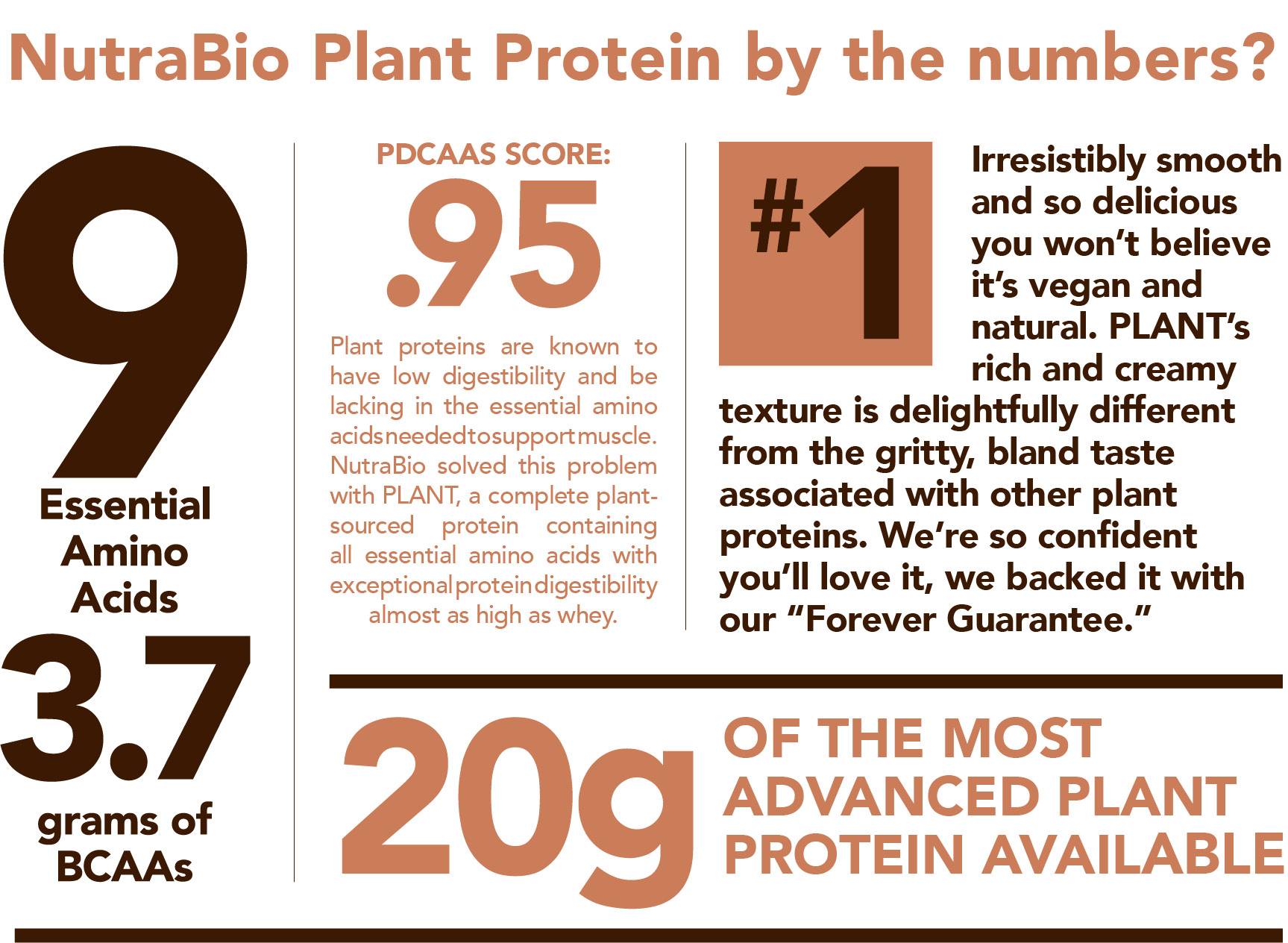
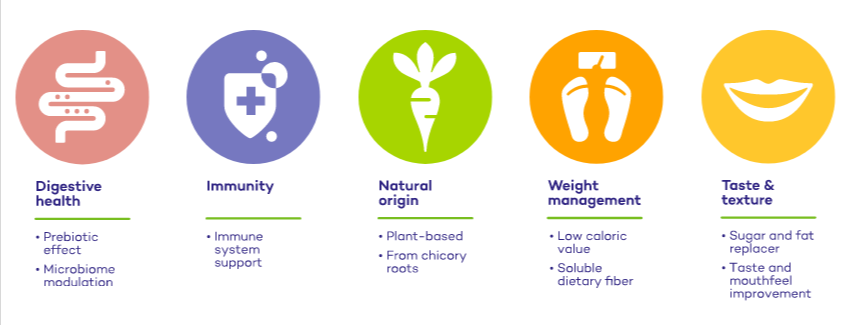
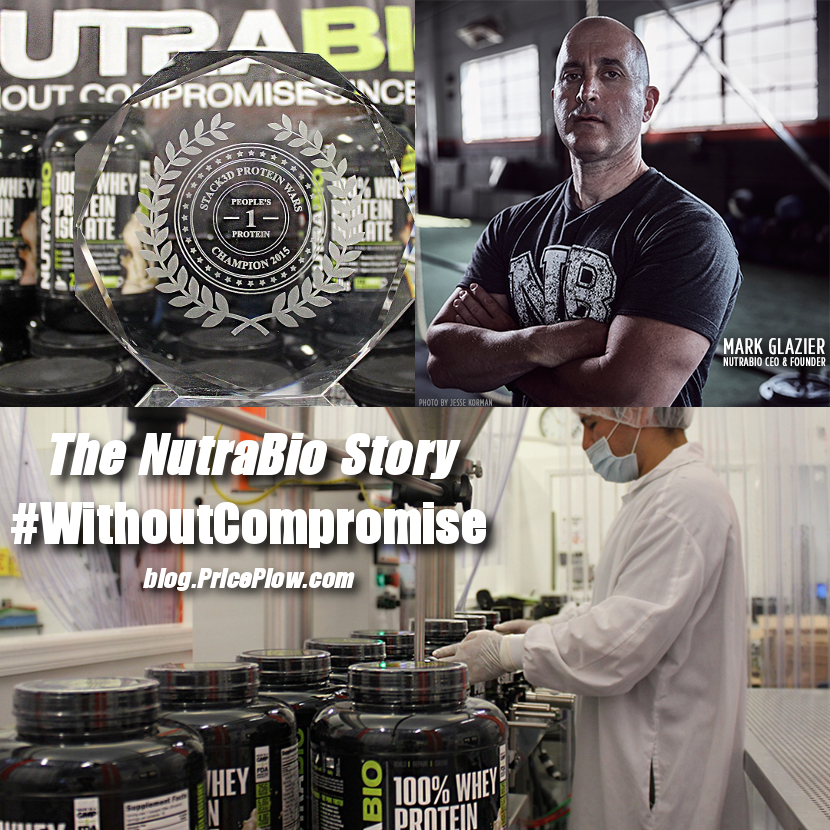
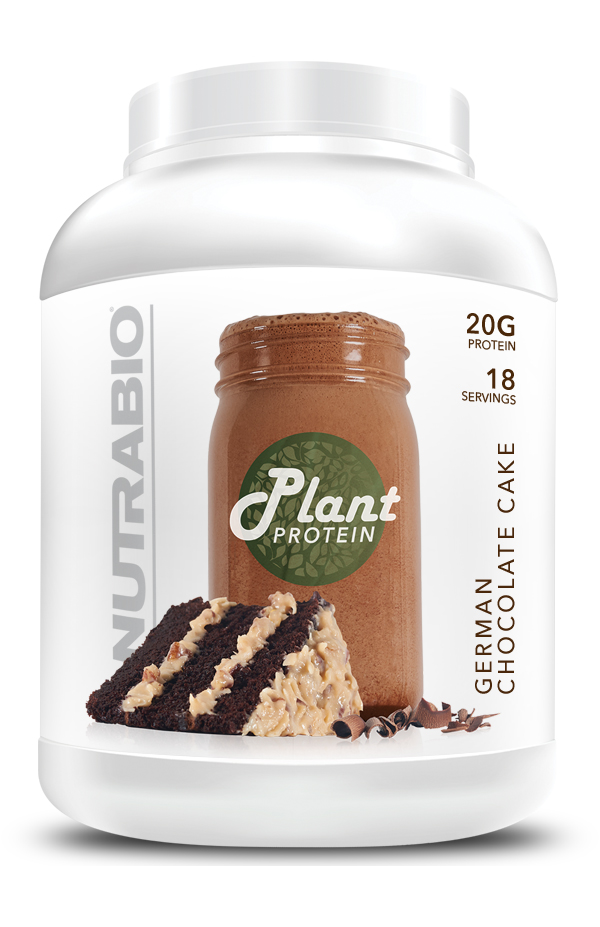
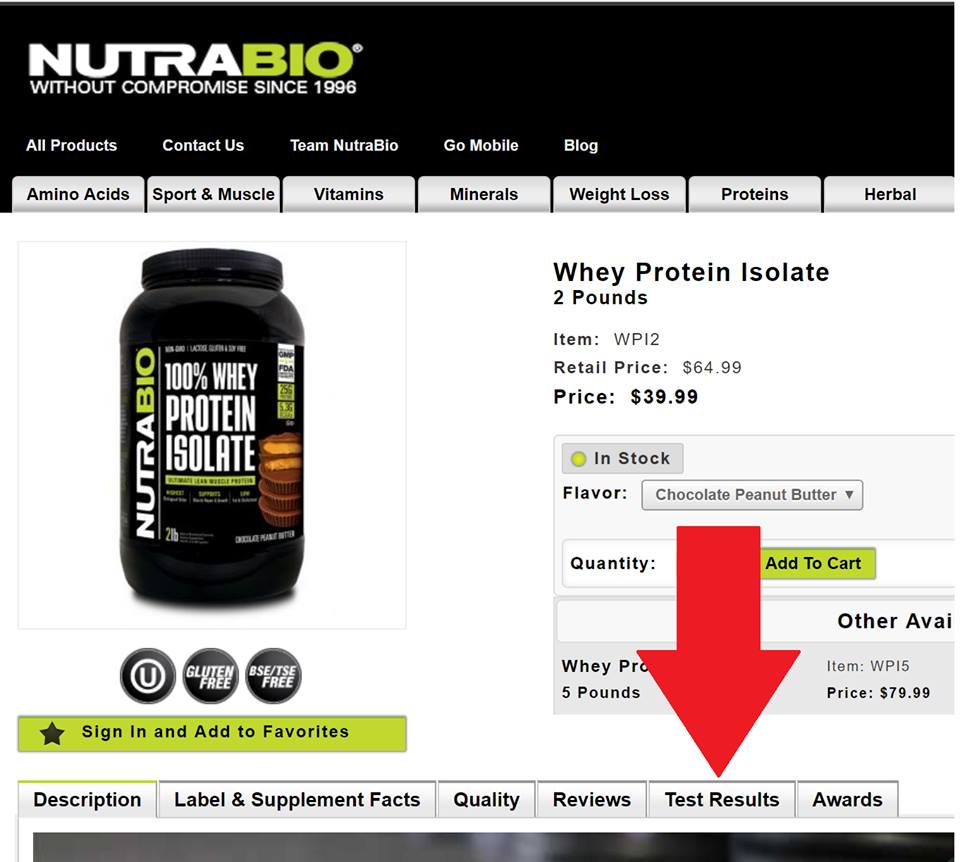
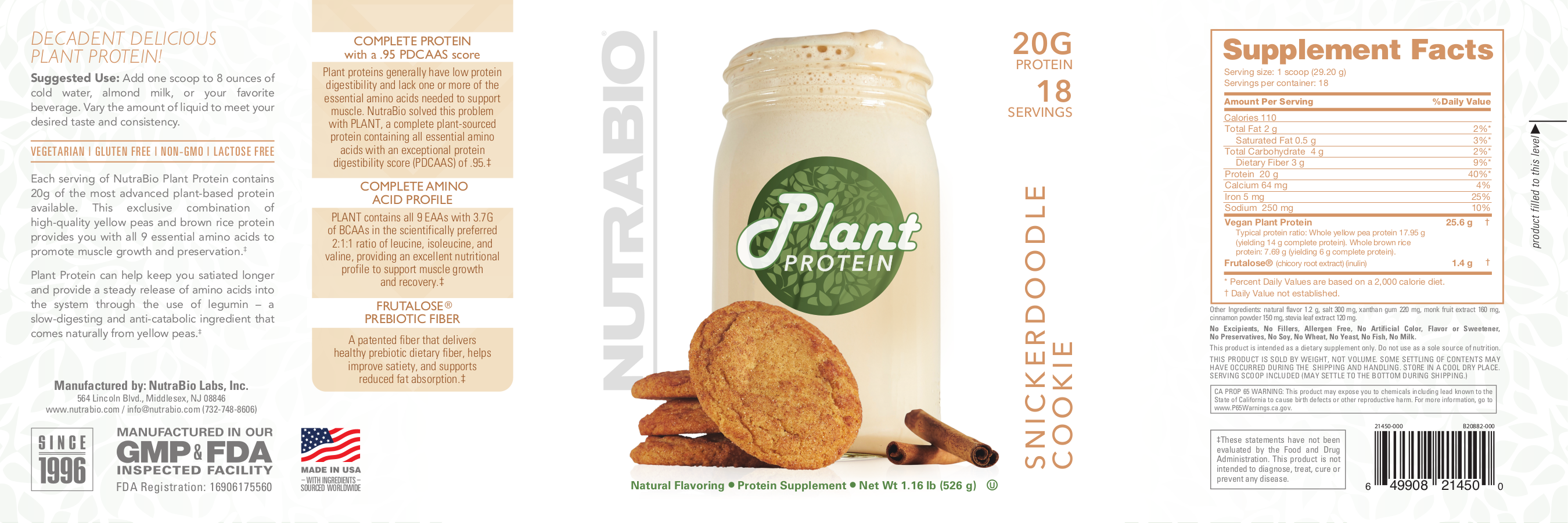


Comments and Discussion (Powered by the PricePlow Forum)